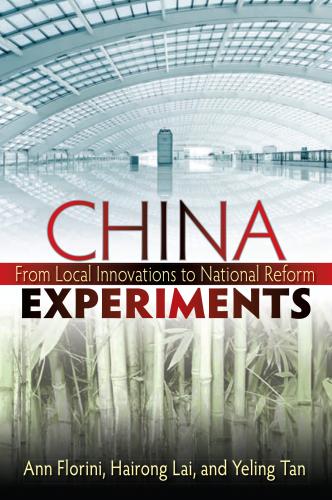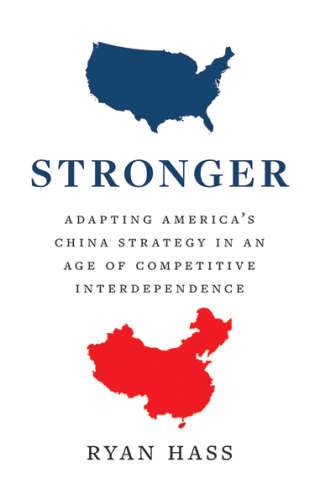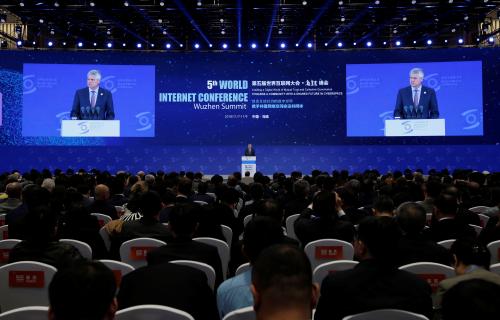Western media coverage of the recently concluded World Internet Conference in Wuzhen largely focused on the event’s contradictions:
- Participants enjoyed unfiltered access to the internet while the rest of the 1.4 billion people in China stayed trapped behind the Great Firewall;
- A top Chinese leader spoke about China’s commitment to openness at the same time as China is tightening its squeeze on U.S. firms seeking to enter and compete in China’s market; and
- U.S. CEOs spoke favorably of China’s efforts to advance frontier technologies as Chinese security services are perfecting ways to harness those very technologies to suppress Chinese citizens’ universal rights.
All of these stories are true and worthy of public scrutiny; however, framing what happened in Wuzhen only through these well-worn narratives is like describing Mt. Everest as tall—incontrovertible, but not very illuminating.
Further, these simple narratives risk overshadowing the larger story: The Chinese government is aggressively moving to attract international support for its vision for internet rule-making and management, while the United States government appears largely missing in action.
I attended the World Internet Conference in Wuzhen for the first time this year. Previously, I worked in the White House and was involved in decisions not to send high-level United States government representatives to the conference. I understand the argument for not sending high-level officials, because I helped craft it.
The argument boiled down to the idea that China was using this forum as a vehicle to create a veneer of international legitimacy for its efforts to harness cyber capabilities to crush domestic dissent, surveil its citizens, steal American intellectual property, and create regulations that tilt the playing field toward Chinese firms at the expense of U.S. companies. Therefore, the United States should not lend legitimacy to such efforts through its participation, beyond observing the proceedings at the working level.
These instincts were validated when the Chinese sought unsuccessfully at the first conference in 2013 to jam participants into endorsing an outcome document for the conference that, if adopted, would have lent international support to such practices.
A lot has changed since then.
This year’s host, Cyberspace Administration of China Minister Xu Lin, was every bit as understated as his predecessor was flamboyant. Xu Lin is understood to be close to President Xi Jinping, which may partly explain why he seemed comfortable enough to not try to arm-twist participants into signing any declarations.
His quiet confidence likely also was informed by the growth of China’s digital economy into a $3-trillion juggernaut, fueled by China’s 750 million netizens, which together account for one-fifth of global internet users. The sheer size of China’s digital economy makes it difficult for any country or information technology company to ignore.
At this year’s conference, Xu and his team were relentlessly on-message in emphasizing China’s openness to outside ideas. The Chinese hosts also quietly acknowledged to me and others the reputational repercussions of the country’s blocking of prominent platforms such as Facebook, Google, and The New York Times, as well as its recently passed cybersecurity law, which mandates that all firms operating in China be open to turning over data about users to Chinese authorities. These officials recognized that China needs to update, narrow, and clarify its regulations in order to protect China’s attractiveness for foreign innovation and investment. Words are cheap, of course, so time will be needed to tell whether such statements translate into tangible actions.
By drawing 1,500 government representatives, international organization officials, business leaders, and experts from over 80 countries to Wuzhen, China showed off its global convening power. The conference also showcased China’s confidence in its ability to advance its vision for the digital economy.
China for decades felt like it started behind and never caught up to the United States and the West in the industrial revolution. It now believes it has gotten off to a strong start in the race that has become the internet revolution. The Chinese believe they have natural strengths with their deep capital pools, unrivaled abundance of data, strong engineering talent base, and the government’s determination to use industrial policy to secure the commanding heights of frontier technologies such as artificial intelligence, quantum computing, robotics, cloud computing, and smart cities.
Now, Chinese ethicists, entrepreneurs, inventers, and policymakers are actively gathering ideas from around the world for how to use the internet to drive economic growth and address societal challenges. These discussions do not get put on pause while Washington obsesses over its latest political intrigue, or focuses on the most proximate foreign policy challenge.
The stakes are too high for the United States government to stay on the sideline.
Starting at home, Washington needs to partner with the private sector to invigorate national discussion on how society will adapt to ever-accelerating global technological progress, what skills will be needed for today’s students to compete in tomorrow’s workforce, and what balance between regulation and free enterprise is appropriate to unlock opportunities while also protecting individual liberties.
As it has done for decades, the United States government also should work to light the global path forward around frontier technologies. It can do so through the power of example that comes from its world-leading innovation hubs and due process protections. Washington also can prioritize efforts to conceptualize and rally international support for norms of acceptable state behavior in cyberspace, just as it did around nuclear issues 50 years ago.
Now is the time, for example, for the United States to build international consensus that cyber interference in other countries’ elections falls outside the scope of acceptable state behavior in cyberspace, and merits global censure. While such efforts will not undo Russia’s meddling in the 2016 U.S. election, they could have a dampening effect on those that may feel tempted to copycat Moscow’s misbehavior elsewhere.
Whereas the United States could afford to withhold from treating China as a leading internet player in 2013, that is more difficult to sustain now. Many top American technology companies participated in this year’s Wuzhen conference, including at the CEO level. The U.S. government should now participate as well.
The U.S. government will have more ability to influence Chinese behavior, push back against Chinese actions that challenge U.S. values, and ultimately shape the terms of the debate on global technology developments by being a part of the conversation than by standing apart from it. The U.S. government should engage broadly and proactively, both at Wuzhen and also with like-minded stakeholders outside of China. In the absence of strong U.S. participation in the debate, the likelihood will grow that China’s vision of an internet centered on sovereignty and control will gain appeal, to the detriment of U.S. efforts to foster an open, secure, reliable, and interoperable cyberspace environment.
Washington made the mistake of standing apart from the creation process of the Asian Infrastructure Investment Bank, which had the effect of self-limiting its ability to influence the terms of that debate. The stakes are much higher now on questions about the societal impact of technological progress. The United States government should not make the same mistake twice.









Commentary
The U.S. can no longer ignore China as a global internet player
December 7, 2017